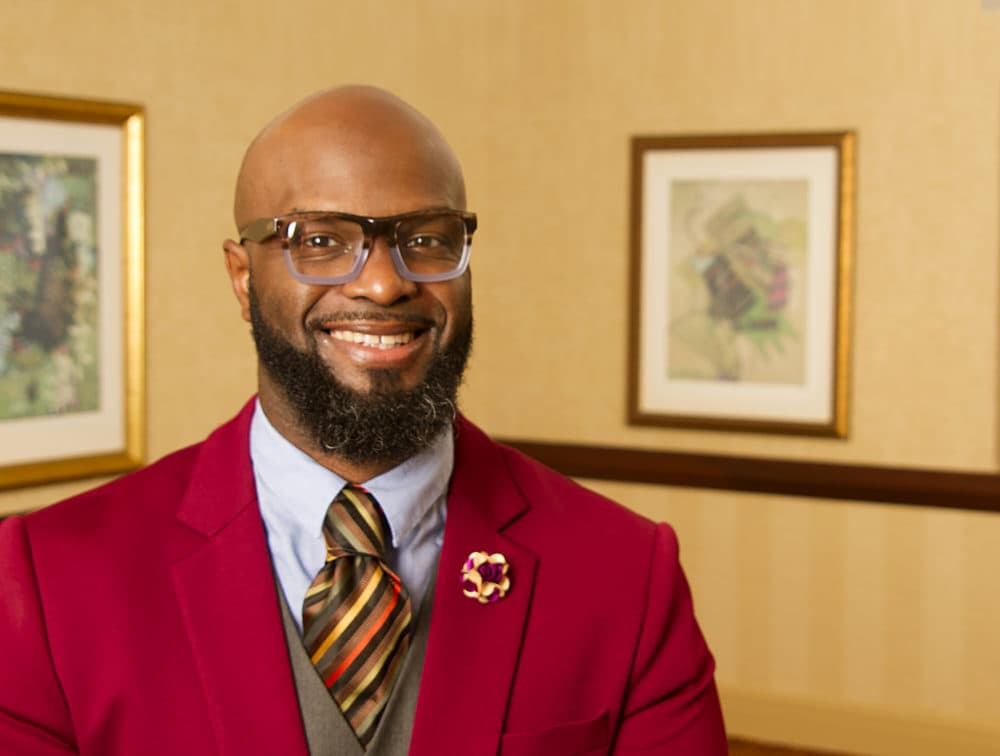Advertisement
Schools, Workplaces Brace For Uncomfortable Conversations About Race Amid Civil Rights Protests

The protests following the killing of George Floyd and other unarmed black people by police are spurring a nationwide discussion about racial injustice in America.
Corporations and educational institutions are using this time to reevaluate their policies on diversity and hear the experiences of their employees of color.
Lawrence Alexander, director of equity and inclusion with the Boston-based education consulting group Carney, Sandoe & Associates, spoke with WBUR's All Things Considered about how companies everywhere are responding to the current movement.
Here are the interview highlights, lightly edited for clarity.
Interview Highlights
On companies' responses to protests, racism in the workplace
You know, an institution will come out and say, "We stand against racism. We believe that our institution is prided on diversity and inclusion." And then employees or students say, "That's really nice that you feel that way about America and people you don't know. Yet it's the people of color — particularly black people in this instance — that you do know that you're not treating inclusively, fairly or justly." And so what it's leading to for me are leaders coming to me about how they can do this work more meaningfully so that the work they do every day matches the statements that they've made public.
On his current messages to clients
Public statements about racism are a good start. But public statements will not end racism. And the answer is not diversity and inclusion. It is anti-racist training for your white employees. One of the things that has brought our nation together in these couple of weeks, like possibly never before, is that white people are outraged about racism. And that's a good start. But we're going to need to continue with that energy, not just with marching feet, but in corporate shoes and in meeting rooms so that the work is meaningful.
Advertisement
On how to improve conversations in schools and workplaces
So, too often when race incidents happen, it becomes the responsibility of the underrepresented students and employees to explain to their white counterparts how racism feels. The pain bearers have to be the educators. So to your question, a respondent may say, "I am tired of explaining all the ills of black people to white people so that I don't have to bear this burden alone. Because it's nice after a racial incident happens to tell me that you're thinking about me and that you stand with me. What would be better is if you stood up for me, and you did something about it before it happened."
On common racist incidents in workplaces
Microaggressions happen all the time. People of color, if your hair is different than white peoples' hair: "Can I touch your hair? Where do you get your hair done?" Or if you get extensions put in your hair, or if you show up one day and your hair looks different than it did the day before. You get asked these intrusive questions and, frankly, people touch you like you're a pet. White people will often come up to folks of underrepresented backgrounds and preface the conversation by saying, "Hey, I don't know if the following sounds racist, but I wanted to bounce it off of you." We don't routinely do that to our white colleagues.
On how to improve workplace environments
There are tons of books on it. Leaders should be readers. And there's actually two answers. There's a great book by a colleague named Robin DiAngelo, and she describes the conundrum that you're talking about, and it's called "White Fragility" -- essentially that white people are not used to being called white people or referring to their racial identity in comparison to others. And so it leads to not really a paralysis, but a fragility when they are confronted with some of their racist ideas or at least their insensitivities. The second piece is, there's not enough diversity at the executive level. Had there been, it would probably stop a lot of the microaggressions before they come out.
On what leaders can do to better address race issues
They can stop asking their employees of color to help them better understand race issues. There are too many available resources for leaders who are white to take the shortcut by asking people in front of them when they should do the work that's in front of them.
They should be doing the work so that they can better understand these issues, to not put their employees and constituencies of diverse backgrounds on the spot. And they should commit to the answer to the issues in front of us this time around, that is not a quick fix, that it will be strategic and that colleagues who are not black need to lead the charge with anti-racist work.
I am really encouraged by the diversity of schools and of companies who are coming with thick skin to recognize that they have come to this moment in their own history late, yet they're not looking away. And I would like to thank everyone who's leaning into this work and encourage more leaders to lead through difficult times because that's what leaders do.
This segment aired on June 8, 2020.

